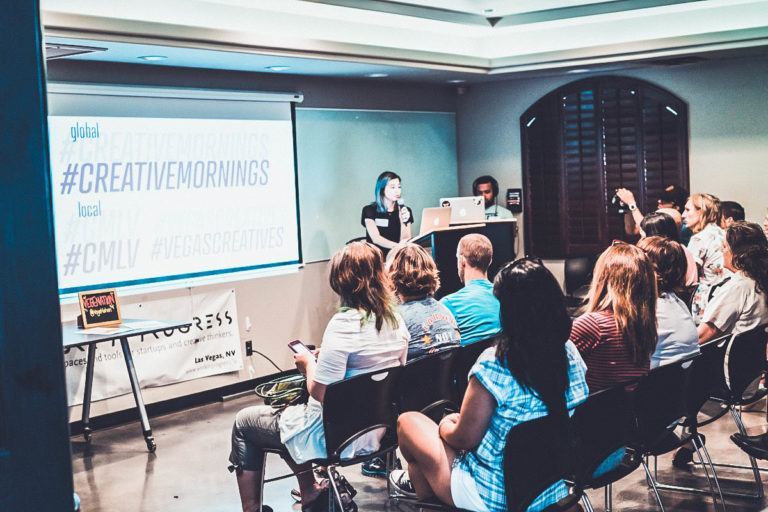Mentorship from the right person is valuable at every phase of your business. If you’re wise, you’ll never “outgrow” your need for mentorship. You’ll just graduate to different mentors.
Of course, an entrepreneur that doesn’t use mentorship effectively never benefits, no matter how great the mentor.
As long as you’re going to take the time to speak with a coach or adviser, it makes sense to use that time wisely and put forth the effort to get results. Don’t waste your mentor’s time and attention. Most startups and entrepreneurs don’t have face-to-face access to a trusted mentor, and when you get that opportunity, you should value it.

Preparing For a Mentorship Meeting
Never show up for a meeting with an advisor without preparing first! That doesn’t mean you should cancel at the last minute if you haven’t prepared – it means that you should respect the time your mentor gives you by being prepped and punctual.
Whether it’s your first meeting or you’ve been receiving coaching from this person for awhile, you’ll get much more value out of a session when you lay the groundwork first.
Before scheduling anything, know what your mentor can and can’t provide. What’s their area of expertise? What have they accomplished that you would also like to achieve? Stay within their core competencies, even if they’re willing to offer coaching on things that fall outside their experience. As a rule, you should never take advice from a person with whom you wouldn’t trade places.
Understanding your mentor’s capabilities equips you to better determine what you want to accomplish from your session.
As an entrepreneur, you should set short-term and long-term goals for your business. Bring those (written) goals to your mentorship session, and also specify what you would like to get out of this individual meeting. Maybe you want to clarify your business goals, break down your bigger goals into manageable steps, or make progress on something that gets you closer to where you want to be.

Setting Session Goals
It’s okay if you don’t really know exactly what you want to accomplish at your first mentorship session. Your coach can help figure that out, in which case your session goal is to clarify your business goals.
You might also schedule a mentorship session to help you organize your ideas. At this phase, you might still be deciding whether or not to start a business at all, and expert advice is a huge help. Give your adviser enough information to help you, though, or else you’ll spend the entire session just trying to describe what you’re thinking without getting anywhere.
Practice explaining your business ahead of time, whether you’re just putting together your thoughts or you’re already underway. Being able to tell people what you do is an important skill that will come in handy often.
Bring your business plan, projections, or examples with you to show your mentor what you want to do.
If it’s appropriate, you might also consider emailing a short summary of your business plan and your session goals to your mentor ahead of time. This gives them a head start, and when you arrive at your session, you can just jump right in. Don’t send them more than 2 or 3 pages of information, though – save the details for face-to-face discussion.

Crushing Your Mentorship Session
Arrive at your meeting on time and be conscious that you don’t go over the scheduled end time for your session. Punctuality is a form of courtesy and respect.
Your mindset will make a huge difference in how your session goes, so stay positive and open.
Remember that your mentor is on your team – their job is to guide you in the direction you want to move, and in order to do that, there has to be some trust between you. Your willingness to ask questions and communicate is vital.
Help your coach out by telling him or her your expectations for your session, and also the reasons you want mentorship in general. If they know what you want to achieve, they’ll be much better able to help. You can also help by telling your mentor your business skill level, your particular strengths and weaknesses, and whether or not you’re working with other advisers.
Take notes, ask questions, and actually listen to the answers you get. Above all, though, the single most important thing you can do to maximize your mentorship is this:
Actually follow the advice from your mentors.
All the good advice and coaching in the world is worthless if you don’t do anything with it. Plus, if you go to your next meeting and start with “here’s what I’ve done with your advice since the last time we met,” your mentor is far more likely to continue helping you.

Mentorship at Work in Progress
Work in Progress offers mentor sessions to all active members free of charge. If you don’t have an active membership, you can still schedule a session with any of our mentors. You’ll just need a Day Pass on the day you’re scheduled.
Some of our mentors are in the building at all times, and some visit just to help out WIP members for a day.
All of them volunteer their time and expertise, and we appreciate their generosity.
Check out our list of mentors and reach out to the team if you’d like to see the session schedule for the month.

Originally posted 2018-04-05 10:28:17.






